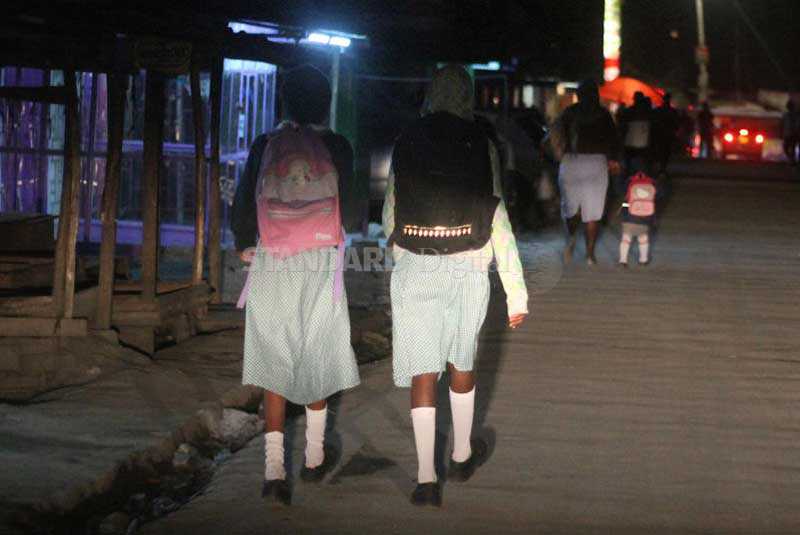
Bus number 10 of Riara Primary School in Nairobi snaked its way from a virtually empty Mombasa Road to the Eastern Bypass before branching on to Outering road. It was 4:37 am and Nairobi had not woken up save for the early matatus that drop off drunkards and are boarded by the early risers.
The early morning showers had reduced to scattered droplets only visible when vehicles’ head lights shone through the darkness. At the turn off on to Outering road, touts signaled a man in a black and blue jacket, an umbrella under his left arm and a young girl in uniform probably aged eight.